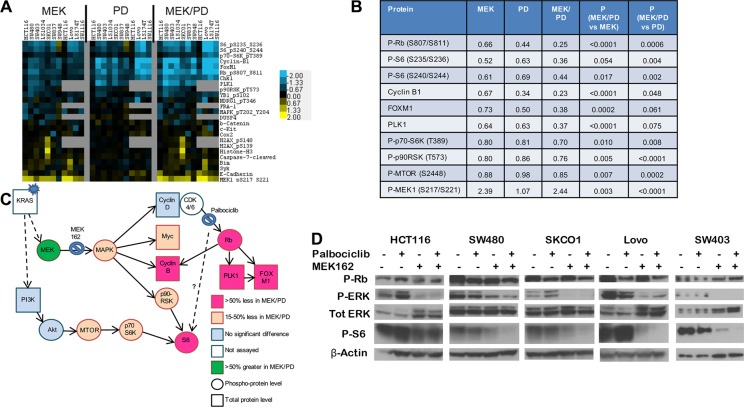Figure 4. Combination of CDK4/6 and MEK inhibitors induces greater inhibition of phosphorylation of S6 and other growth factor signaling and cell cycle proteins.
(A), Protein lysates were obtained from a panel of 9 KRAS mutant CRC cell lines after treatment with DMSO control, palbociclib (PD) 400 nM, MEK162 (MEK) 200 nM, or MEK162 200 nM + palbociclib 400 nM (MEK/PD) for 24 hours, and RPPA was performed. Protein levels were normalized to DMSO controls of each cell line, and a log2 heatmap of the most differentially expressed proteins was generated. (B), Median expression levels of proteins in KRAS mutant CRC cell lines treated with MEK162 (MEK) alone, palbociclib (PD) alone, or the combination (MEK/PD), relative to DMSO-treated control. p-values were determined using paired Student's t-test. (C), Protein expression data from RPPA was mapped according to relevant pathways. Circles represent phosphorylated epitopes on the proteins and squares represent total proteins. Activating KRAS mutations are thought to lead to constitutive activation of downstream signaling pathways, but adding MEK inhibitor and CDK4/6 inhibitor yielded the depicted changes in protein expression. (D), Western blotting of the indicated antibodies for KRAS mutant cell lines HCT116, SW480, SKCO1, Lovo, and SW403 treated with palbociclib 400 nM and/or MEK162 200 nM for 24 hours.

